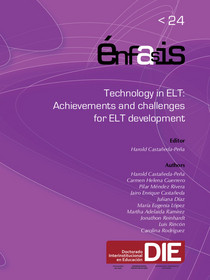
While traditional modern foreign language educational practice has traditionally relegated everyday language to beginning levels, upholding prestige varieties, academic writing, and rarified literary practices for more advanced study, modern standards and guidelines promote proficiencies in vernacular domains that modern L2 (second and foreign language) learners arguably need to survive. That fact is especially true if they wish to actually use the languages they study for everyday purposes. Recognizing this, some L2 instructors have noted the potential of social media—including blogs, wikis, social networking sites, and dozens of similar sites, services, and apps—to complement focus on the academic and engage learners in everyday, vernacular domains. They hypothesize that because social media are popular and familiar, learners will more easily authenticate and accept their use for formal L2 learning activities. Moreover, the vernacular, everyday nature of social media might afford learners access to discourses in the L2 that are normally unrecognized and difficult to replicate in formal instruction.
By 2018, social media will be part of the everyday lives of nearly a third of all humans, all over the planet (Statista, 2016). Increasing access to new technologies and broadband have brought about unprecedented levels of sharing and remixing of digital media, as aspects of production and distribution of media are given over to individual, yet socially collectivized users. Literacy scholars (e.g. Lankshear and Knobel, 2006) argue these new practices lead to new types and forms of literacies and new dispositions towards authorship, expertise, and identity. Unlike traditional academic literacies, however, new digital literacies are learned mostly experientially and are normed not to officially sanctioned standards but to particular ecologies and “cultures-of-use” (Thorne, 2003) that are emergent, dynamic, and relational. This presents challenges for educators who wish to develop and leverage social media literacies for formal language learning purposes.
In response to these challenges, in this chapter I propose that to leverage the potentials of social media for effective and autonomous L2 learning, pedagogy should take a literacies-focused approach that balances provision of learner agency with the tools needed to develop awareness. To situate this proposal, I first present a summary of research on social media for second and foreign language teaching and learning (L2TL) based on surveys of the field (Reinhardt, 2017; Reinhardt, in press), with a particular focus on agency, awareness, and autonomy. I then outline a literacies approach to social media-enhanced L2 pedagogy as an approach that may be up to the challenge.
Published the

Redes Sociales DIE-UD